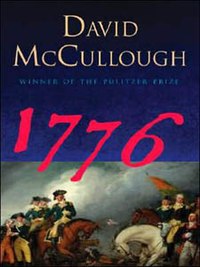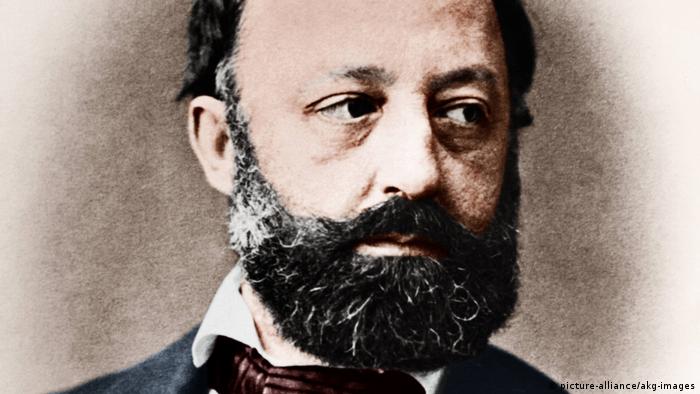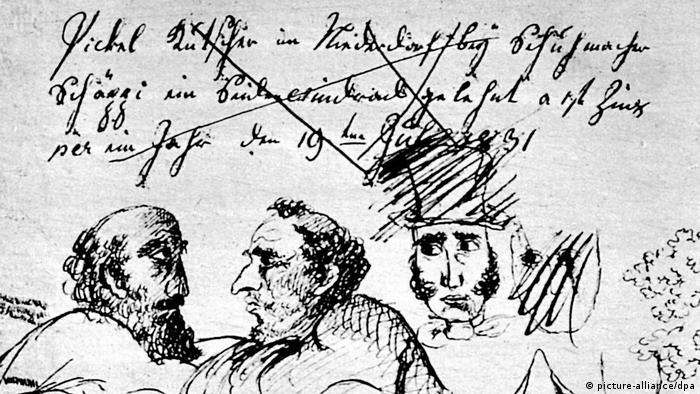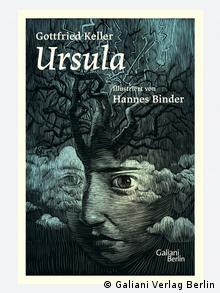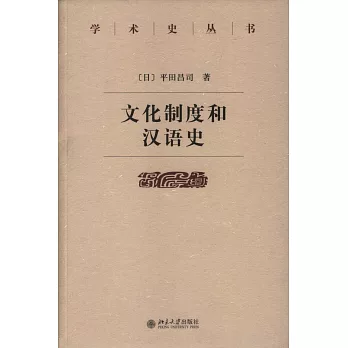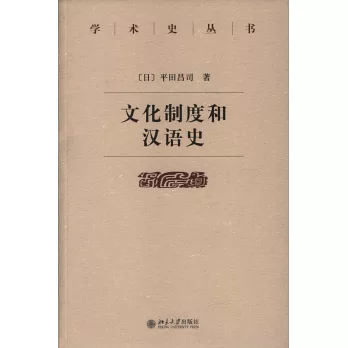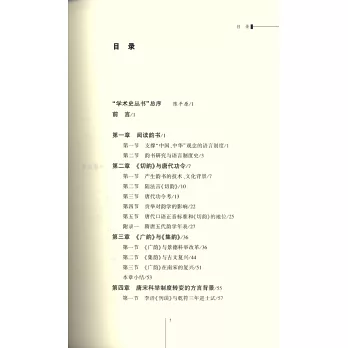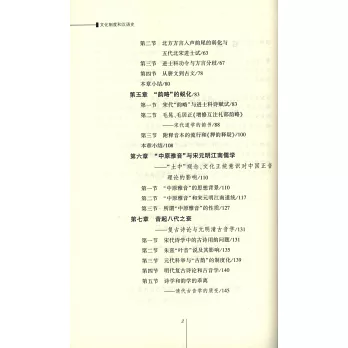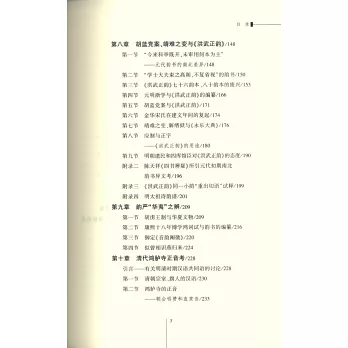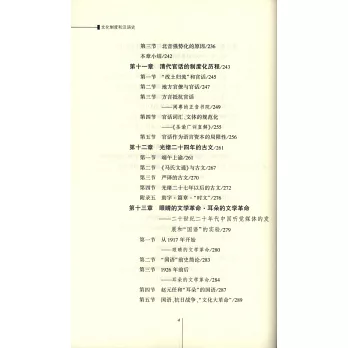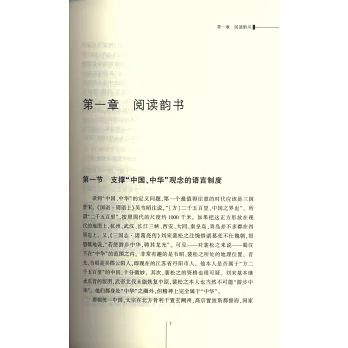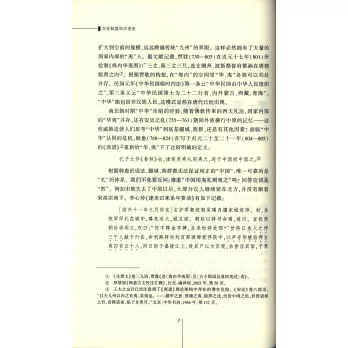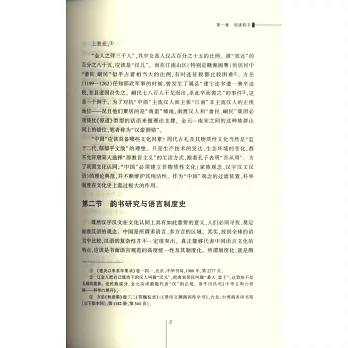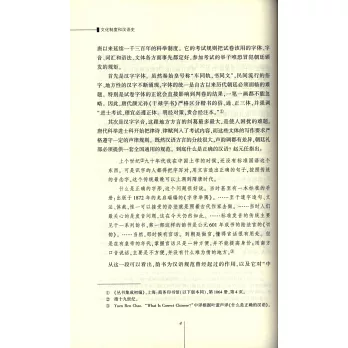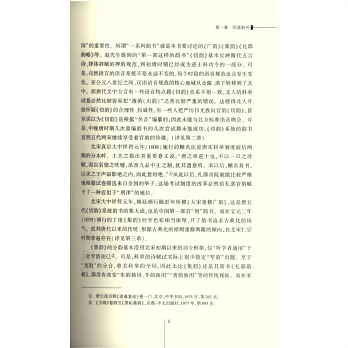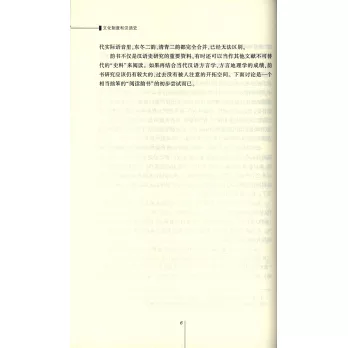An Introduction to "The Magic Mountain"——By A.S.Byatt
(Selected from The Magic Mountain,English Edition,Everyman's Library)
The Magic Mountain, a new translation into English by
John E. Woods,1996,
ISBN0-679-77287-1. This won the
Helen and Kurt Wolff Translator's Prize in 1996.
In 1912 Thomas Mann's wife,Katja,stayed in Dr Friedrich Jessen's"Waldsanatorium" from March to September,suffering from a lung complaint.Mann himself visited her for four weeks in May and June.During that time,he said,he suffered a troublesome catarrh of the upper air passages,owing to the damp,cold atmosphere on the balcony.The consultant diagnosed a "moist spot" of tubercular infection,just as Dr Behrens in the novel diagnoses Hans Castorp.Mann,however,did not stay in the magic mountain,but hastened back to Flatland and Munich,where his own doctor advised him to pay no attention.There is an ironic twist to this story which would have amused the novelist - Katja.it appears was misdiagnosed,whereas Mann himself,in his post-mortem,was indeed seen to bear the marks of an earlier tubercular illness.
This is the biographical germ of the novel.Its intellectual germ is related to Mann's great novella,Death in Venice.Death in Venice was a classically constructed tragedy of the fall of a great artist and intellectual.The Magic Mountain was to be the satyr play that accompanied the tragedy - the comic and parodic tale of a jeune homme moyen sensuel,caught up in the dance of death,amongst the macabre crew of the sanatorium.Both tales represented the fate of someone out of context,on a holiday visit,encountering love,sickness and death with a peculiarly German mixture fascination and resignation.
Work on the novella was interrupted by the First World War.Mann spent the war years writing passionately in support of the German cause.His "Thoughts in War",his praise of Frederick the Great as a man of action,his Reflections of an Unpolitical Man,are definitions of the German genius which,he asserts,is concerned with Nature,not Mind,with Culture as opposed to Civilization,with military organization and soldierly virtues.Culture is
compatible with all kinds of horrors - orders,magic,pederasty,human sacrifice,orgiastic cults,inquisition,witch-trials etc.-by which civilization would be repelled;for civilization is Reason,Enlightenment,moderation,manners,scepticism,disintegration-Mind(Geist).
Culture is German.Civilization is predominantly French.Mann opposes Frederick the Great and Voltaire as archetypes of the opposition.Voltaire is a man of thought;Frederick,a greater hero,is a man of action.What Mann was arguing very much what most German artists and writers were arguing -the "decadent" took strength from a sudden nationalist identification,There was,also,a personal battle furiously pursued throught the battle of ideas.Thomas Mann's brother,Heinrich,was against the war,and in favour of socialism,civilization and reason.In November 1915 Heinrich Mann published an essay on Zola,praising Zola's defence of Dreyfus,praising Zola as a civilized "intellectual",castigating those in France(and by implication those in Germany) who compromised themselves by supporting unjust rulers and warmongers.There is a sense in which the wartime attitudes of the brothers mirror the conflict between the civilized Settembrini and the spiritual nihilist Naphta,in the novel as we read it.And in Thomas Mann's Unpolitical Reflections(published in October 1918)he makes a direct attack on his brother,in the figure of the Zivilisationsliterat,who claims that he sides with Life,Reason,Progress,and is against death and decay.He quotes the author of "that lyrical-political poem which has Emile Zola as its hero" as saying he himself has "the gift of life...the deepest sympathy with life".Mann the ironist observes that "the problem of what'health'is,is not a simple problem."
In August 1915 Mann wrote to Paul Amann:
Before the war I had begun a longish tale,set in a lung-disease sanatorium-a story with basic pedagogic-political intentions,in which a young man has to come to terms with the most seductive power,death,and is led in a comic-horrid manner through the spiritual oppositions of Humanism and Romanticism,Progress and Reaction,Health and Sickness,but more for the sake of finding his way and acquiring knowledge than for the sake of making decisions.The spirit of the whole thing is humourous-nihilistic,and on the whole the story inclines towards sympathy with death.It is called The Magic Mountain and has a touch of the dwarf Nase for whom seven years passed like seven days,and the ending,the resolution - I can see no alternative to the outbreak of war.
In March 1917 Mann wrote again to Amann about the novel,this time describing the opposed figures of a "disciple of work and progress,a disciple of Carducci"and a "doubting,brilliantly clever reactionary",and qualifying his hero's sympathy with death as "unvirtuous".He has to write his unpolitical reflections,he claims,to avoid overloading the novel with ideas.
When the thousand-page novel was finally pubished in November 1924,Mann was reconciled with his brother after a bitter rift,and his attitudes to German culture and the justification of war had changed.The Magic Mountain itself was now a large and complicated work of art,working as a mixture of Dantesque allegory and modern European realism,of German mythic culture and intellectual debate,of Bildungsroman and farce.
The Magic Mountain itself is a myth and a symbol with multiple meanings and charms.The German magic mountain is the Brocken,up whose dangerous paths Goethe's Mephistopheles leads the delinquent Faust,to join the lawless and phantasmagoric delights of the Witches'Sabbath,or Walpurgisnacht.In the Walpurgisnacht chapter of the novel Settembrini quotes Faust(as he often dose):
Allein bedenkt!Der Berg ist heute zaubertoll,
Und wenn ein Irrlicht Euch die Wege weisen soll,
So müsst Ihr's so genau nicht nehmen.
But bear in mind the mountain's mad with spells tonight
And should a will-o'-the-wisp decide your way to light,
Beware-its lead may prove deceptive.
The Walpurgisnacht of the novel is Shrove Tuesday - the Munich "Fasching" or licentious carnival feast of disorder.Mann marks the curiously timeless passing of time in the magic mountain with feast days like Midsummer,as well as fleeting seasonal weather.The hectic patients become phantasms and apparitions-Behrens,the superintendant is compared by Settembrini to Goethe's leading warlock,Herr Urian.
But there are other,equally powerful magic mountains.There is the Venusberg of Wagner's Tannhäuser,in which the Thuringian Wartburg becomes the secret dwelling of Venus,who entices young knights into its depths,and surrounds them with sensuous delights,amongst nymphs and sirens.This Venus is a descendant of an ancient German godess Holda,originally the white lady of spring,a figure not unlike the fairy queen who in British fariy story lures True Thomas into the hillside,where,also,seven years appear to be only one day.The dwarf,Nase(Nose),of Mann's letter to Amann is also a fairy-tale figure,in a Romantic tale by Wilhelm Hauff - a little boy imprisoned by an enchantress and transformed into a dwarf - for whom also time passes st seven years in a day.The mysterious Clavdia Chauchat,and Castorp's increasing erotic obsession with her,are part of these Venus-dreams,which shrivel and distort everyday reality.
German literature is a dialogue between German classicism and German romanticism,and there is also a German-classical ariginal of the magic mountain.Nietzsche uses the precise word,"Zauberberg"in The Birth of Tragedy(1870-71) to refer to Mount Olympus."Now",he writes,"the Olympian magic mountain opens itself before us,showing its very roots."This "now"in The Birth of Tragedy,is the moment when Nietzsche quotes the wisdom of Dionysus's satyr companion,Silenus,who tells King Midas what is the greatest good of the human condition:
"Ephemeral wretch,begotten by accident and toil,why do you force me to tell you what it would be your greatest boon not to hear?What would be best for you is quite beyond your reach:not to have been born,not to be,to be nothing.But the second best is to die soon."
What is the relation of the Olympian gods to this popular wisdom?It is that of the entranced vision of the martyr to his torment.
Now the Olympian magic mountain opens itself before us,showing its very roots.The Greeks were keenly aware of the terrors and horrors of existence;in order to be able to live at all they had to place before them the shining fantasy of the Olympians.
Here is a very pertinent concatenation of a saytr,the desire for death which tempts Hans Castorp,and a moutain hutching illusory forms.Nietzsche's argument in The Birth of Tragedy is that the beauty of Greek tragedy derives from the satyr chorus,which was originally a religious ritual celebrating the dismemberment and eating of the dying god.Dionysus,and later became the chorus,and the comic fourth satyr play which accompanied the classical tragic trilogy of plays at the City Dionysia.Nietzsche's text turns on the opposition between the Apollonian and Dioysiac principles in Greek art.Apollo goes with clarity,definition,individuality,dream and illusion,Dionysus represents the drive to bloody dissolution,annihilation,and a strong and gleeful admisson of the terror and meaninglessness of life.Sophoclean heroes,Nietzsche tells us,are Apollonian masks,which are the opposite of the dark circles we see when looking at the sun.The are luminous spots designed to"cure an eye hurt by ghastly night".
The Birth of Tragedy haunts European cultrue.Freud's Beyond the Pleasure Principle(1920)establishes a death drive,or principle of thanatos,to change his vison of dreams as essentially pleasure-seeking.It was written partly in response to the persisting dark dreams of the soldiers of the First World War,forced to relive horrors.Mann plays with its ironies and ambiguities in many of his texts.Both Aschenbach,in Death in Venice,and Hans Castorp,have riddling dreams,directly drawn from Nietzsche's vision,which are turning-points in their respective stories.
Aschenbach,the lucid artist,begins his descent into madness when he meets the stranger outside the mortuary chapel in Munich.This sharp-toothed person,with "an air of imperious survey,something bold or even wild about his posture",and looking exotic and strange,is surely the figure of Dionysus who appears outside the little temple and greets Pentheus at the beginning of Euripides'Bacchae.The boy,Tadziu,with whom Aschenbach falls in love in Venice,has a name that sounds like Zagreus,a name for the dismembered Dionysus.The stranger god,with his panthers,and the cholera,both come out of the East-as does the smiling Clavdia Chauchat,with her slanted Kirghiz eyes.Like Pentheus,Aschenbach disintegrates and has a very precise dream-vision of the stranger-god,with his flute-music,his rout of companions,"a human and animal swarm"of maenads and goats,who tear at each other and devour "steaming gobbets of flesh".It is a vision of the loss of self in the religious frenzy of the sacificial feast.
Hans Castorp,in the late chapter,"Snow",lost wandering in circles,falls into an exhausted sleep.Castorp's dream-vision is at first a blissful and idyllic vision of a classical Mediterranean landscape(based on a painting by Arnold Böcklin)of beautiful and healthy humans working and playing in orchards,in meadows,by the sea.But the dreamer is led into a temple where two old hags in the sanctuary are dismembering a living child above a basin,and cracking its bones between their teeth.The lovely order is intimately connected to the mystery of the dimembered god.This vision causes Castorp to understand that the "courteous and charming" people are intimately connected to "that horror".They are interdependent,health and horror.Castorp is the object,like Everyman,of a tug-of-war between the two philosophers,the tutous and malicious Naphta,In the snow he sees that neither is right.What matters is his heart-beat,and love.
The Magic Mountain,as well as being a German myth,is a parody of the Bildungsroman,in which a young man goes out into the world,and discovers his nature through his encounters.The two talkative opponents are pedagogues,representing visions of human nature and the world which were tested in Thomas Mann himself during the 1914-18 war.Settembrini is partly attractive,and partly,as Castorp sees him,an organgrinder playing one tune,resolutely unaware of its limitations.Naphta,Jew,Jesuit,connoisseur of the irrational,the anarchic,the nihilistic,is closer to Mann's own vision,which itself is closer to Nietzsche'strong pessimism than to the hopefulness of the Age of Reason.An enormous proportion of the novel consisits of bravura descriptions of battling ideas,and it is fashionable now to dismiss Mann as a "dry"(even desiccated)"novelist of ideas",as though that description meant that he did not understand human feeling,or passion ,or tragedy.It is possible to argue that novelists in general give disproportionately less space to intellectual passions that their power in society warrants.People do think,and they do live and die for thoughts,as well as for jealousy or sex,or erotic or parental love.As that wise critic,Peter Stern,remarked drily."seeing that modern men are as often intellectuals as they are gamekeepers or bullfighters,Mann's preoccupation is,after all,hardly very esoteric".It is perhaps worth making the point that my own early readings of The Magic Mountain,impeded by scholarly earnestness,trying to get my bearing in an ocean of unfamiliar words,and baffled by an inadequate translation,quite failed to see how funny,as well as ironic and subtle,much of the argumentation and debate is.The nature of our relation to the comedy changes as Castorp educates himself out of the extrodinary bourgeois unreflecting innocence in which he begins.He begins to be amused,and we readers begin to share his amusement rather than laughing at him,or observing him from outside his world.
It is necessary to say something about the late appearance of the Personality,Mynheer Peeperkorn,a figure somewhere between Dionysus and Silenus,who is so little part of verbal argument that he can never finish a sentence.The idea behind him is that here is someone who does not discuss living and dying,but simply lives and dies.He is what he is,and claims Clavdia because he is alive.To take him seriously as someone who transcends the dialectic between the disputing angels of "life"and "death" we need,I think,to see him in terms of Thomas Mann's essay on Goethe and Tolstoy,published in 1922.
This complicated,passionate,witty essay compares the two great writers as earthy writers,comfortable in their skins,possessed of a natural egoism which is at the centre of their power as writers and as observers of the earth they live in.He uses for both of them the legend of the giant Antaeus"who was unconquerable because fresh strength streamed into him whenever he touched his mother earth."Mann tells tales of the physical presence of the great men-Tolstoy at sixty,playing games called "Numidian horsemen" with a room full of adults and children.He recounts an incident recorded by Tolstoy's father-in-law,Behrs:
They were walking about the room together in light converse one evening,when suddenly the elderly prophet sprang upon Behrs's shoulder.He probably jumped down again at once;but for a second he actually perched up there,like a grey-beared kobold-it gives one an uncanny feeling!
In the case of Goethe,Mann records,among other things,his sensitiveness to weather conditions:
It was due to his almost exaggerated sense-endowment;and became positively occult when that night in his chamber in Weimar he felt the earthquake in Messina.Animals have a nervous equipment that enables them to feel such events when they occur and even beforehand.The animal in us transcends;and all transcendence is nature's familiar goes beyond the bounds of the actual senses,and issues in the supra-sensual,in natural mysticism.With Goethe the divine animal is frankly and proudly justified of itself in all spheres of activity,even the sexual.His mood was sometimes priapic-a thing which of course does not happen with Tolstoy.
Mann contrasts this earthy self-possession with the spiritual "shadow-world" of Dostoevsky("exaggeratedly true")and with Schiller,another "son of thought".Schiller's essay,"On Naive and Sentimental Poetry" was described by Mann as "the greatest of all German essays".In it Schiller distinguishes between the "naive" poet who has the plastic energy simply to make a world(Shakespeare,Homer),and the "sentimental" poet who can only find a world through his own sensibility and reflections.Mann puts Schiller with Dostoevsky:
...the conflict between contemplation and ecstatic vision,is neither new nor old,it is eternal.And it finds complete expression in,on the one side,Goethe and Tolstoy,and on the other Schiller and Dostoevsky.And to all eternity the truth,power,calm and humility of nature will be in conflict with the disproportionate,fevered and dogmatic presumption of spirit.
During the war Thomas opposed himself and Heinrich as "nature"and Geist(an untranslatable and essential German word that appers sometimes as "mind" and sometimes, as above,as "spirit".In this essay the oppositons are more subtle,but related.Goethe's reasonable respect for French culture is given credit.But Mann's attempt to present the "Antaeus" aspect of Tolstoy and Goethe is surely related to what he hoped to present in Peeperkorn,who exceeds both Settembrini and Naphta,to whom the educted Hans Castorp pays respect.Like Castorp himself,Peeperkorn differs from Mann's usual heroes in being neither intellectual,articulate nor artistic.Like Tolstoy,according to Mann,but not like Goethe,Peeperkorn understands and has an affinity with the Oriental and the Asian.Tolstoy's "tremendous Orientalism found intellectual expression in this mockery and denial of European progress".Goethe "beyond a doubt hated and despised Asia and a has more affliation with the humanity of Western Europe,which has given the mould to our civilization,than with the shapeless and savage human nature of Half-Asia" .Symbolically both Cladvia and Peeperkorn are related to that shapeless and savage half-Asia,out of which Dionysus advanced on classical Greece,and the cholera crept on in Death in Venice.It is interesting that in another essay,"Freud and the Future",Mann uses Europe's geographical relation of Sigmund Freud's map of the psyche.Europe is the ego,Asia is the id.
As for the ego itself,its situation is pathetic,well-night alarming.It is an alert prominent and enlightened little part of the id-much as Europe is a small and lively province of the greater Asia.
Althought Peeperkorn is not an artist,he was partly based,at least physically,on Gerhard Hauptmann,which later became an embarrassment,and may have inhabited Mann's presentation of him.He should be above all a living presence.He is in fact only the idea of a living presence.
It is perhaps worth remarking that Hans Castorp's curious pursuit-his contemplative moments which he refers to from childhood on as "regieren"-reigning,governing-are also related to the instinctive animal well-being Mann admires in Goethe and Tolstoy.(It has been persuasively suggested that there is a sly reference to masturbation,the fleshly egoistic pursuit par excellence.)At such moments Castorp is wiser and sounder than the frenzied beings around him.
Thomas Mann saw himself as one in a line of German artists-the line ran from Goethe through Nietzsche and Wagner.The Magic Mountain as Bildungsroman is aware of Wilhelm Meister,whose hero progresses from travelling theatre to medical researches.In many ways the most passionate and exciting parts of The Magic Mountain
are those chapters in which Hans Castorp acquires knowledge of anatomy and physiology,the composition of the cells of the body,the forms of the bones and the nerves.Here again,we touch the original idea of the novel as one sympathetic to the idea of death.Goethe was an anatomical researcher - Mann in the essay describes the moment when Goethe saw"a broken sheepskull on the Lido and had that morphological insight into the development of all the bones of the skull out of the vertebrae which shed such important illumination upon the metamorphosis of the animal body".(It is possible that if Goethe had not been an anatomist and morphologist ,George Eliot would not have invented the interlocking form and subject matter of Middlemarch.)Mann contrasts Goethe's organic sympathy with living matter with Tolstoy's deep interest in death:
Tolstoy's poetic genius for questioning death is the pendant to Goethe's intuition in the field of natural science,and sympathy with the organic is at the bottom of both.Death is a very sensual,very physical business;and it would be hard to say whether Tolstoy was so interested in death because he was so much and so sensually interested in the body,and in nature as the life of the body,or whether it was the other way about.In any case,in his fixation with death,Love comes into play too...
This provides a way of seeing the wonderful chapter,entitled simply "Research",in which Hans Castorp,inside the mountain,looks at the primal tissues of life and death-and the way in which the organic comes out of the inorganic,death and decay are interwoven with life,procreation and energy.In a conventional novel,there would be something ridiculous in the transformation of all this strenuous attempt at information and analysis into an erotic vision of Clavdia Chauchat.But to read it only in that way is to underestimate it.Castorp is educated.His vision of Clavdia is complex.He will carry not her photo,but an image of an X-ray of her skeleton and interior organs.
There is a way in which it is possible to read this thousand-pagetour de force as though it were a conventional realisic novel - though readers who set out to do so uncritically risk bafflement and disappointment.The narrative tone of voice is bland and slightly jocular - a tale-teller's voice,distancing the reader from involvement with the characters.The narrator is showing the civilized reader around the curiosities of a menagerie.Novel-readers expect certain emotional satisfactions - love and liking,drama and tension,insights into the motivation and drives of characters.At first,and at second glance these things are deficient in this story.The most powerful emotion,apparently,is Hans Castorp's growing erotic obsession with Madame Chauchat,which is not love,but the repressed excitement that swarms in boarding schools and other closed communities.It is associated by Castorp with his earlier repressed passion for Pribislav Hippe.(And is thus also associated with the love of death,since Hippe means scythe.)Clavdia Chauchat is an erotic presence - or absence - rather than a character in any real sense.Castorp's erotic speech to her,derived from his anatomical researchers and Walt Whitman's "I sing the Body Electric" is bizarrre and even farcical - part of the grotesquerie of the Walpurgisnacht.He grows up,yes,but it is not what readers looking for "relationships" will find satisfactory.Even Settembrini and Naphta are less than characters because they so fully fill their function of being European types,southern anarchist,northern German-Jewish mystic,and their clothes and possessions are precisely constructed to sharpen the edges of their representative functions.
Nevertheless,I think,we persist in trying to read this story as a novel,and not simply as an allegory.This is partly at least because Mann always raises his structures of meaning on a foundation of the real,the solid,the banal,the observable.The sanatorium,its menus,its doors and windows,its relation to the valley and the village,the blankets and the chaiseslongues and the social conventions are very precisely observed - as are the details of the phases of consumption,the medical paraphernalia,the paintings of Behrens and the seances of the psychoanalyst Dr Krokowski.When Hans Castorp sees the X-Ray of his hand,and realizes that he is seeing his death,understands for the first time that he will die,this is a moment of pure realism which immediately takes its place in a symbolic structure.
And there are two characters in the novel who are characters almost despite the nature of the story.One is Castorp himself,and the other is Joachim.Joachim is the silent and obedient Good soldier.The Thomas Mann of the Unpolitical Reflections claimed military honour and steadfast obedience as peculiarly German virtues.Joachim is one of those opaque characters we learn to love from outside.His attempt to evade the Magic Mountain,and his defeated return and death are appalling and moving.He believes in war - "War is necessary.Without war the world would soon go to rot,as Moltke said."When his spirit is summoned in the seance,it is through Gounod's song for Valentin,Gretchen's honourable soldier brother in Faust,who is murdered in a duel.Joachim is genuinely sick,a patient patient,unlike Castorp,who may be merely indulging curiosity or a need for speculative inactivity.Joachim's death comes before the onset of war,and the grisly appearance of his spirit foreshadows it.
Castorp himself began as the hero of a comic satyr-play,and has an essential element of the buffoon which persists.He is also an innocent.He is embarrassing - Mann the novelist makes his readers squirm with Joachim at Castorp's imperceptive remarks to the sick patients around him,who are so careful of each other's feelings.But he learns,and the amount he learns - and the way in which what he learns is not through the feelings but through the exercise of the mind - is both surprising and satisfying,If Joachim's military fortitude is one German virtue,Castorp's final connection to music is another.
He returns to the land of the living and is last seen struggling through the Flanders mud singing Schubert's Lindenbaum.The tree in the song is one of those leitmotifs that cannot be reduced to a simple symbol with a definable meaning.Castorp uses the new invention of the gramophone to turn the Berghof into another microcosm and gathering of ghosts,hearing music by unseen singers from all over the world - "in America,in Milan,in Vienna,in St Petersburg".He listens to the drama of Aida and Carmen,and ends up with the irreducible simplicity of the Lindenbaum.
Let us put it this way:an object created by the human spirit and intellect,which means a significant object,is "significant" in that it points beyond itself,is an expression and exponent of a more universal spirit and intellect,of a whole world of feelings and ideas that have found a more or less perfect image of themselves in that object - by which the degree of its significance is then measured...
Does anyone believe that our ordinary hero,after a certain number of years of hermetic and pedagogic enhancement,had penetrated deeply enough into the life of the intellect and the spirit for him to be conscious of the "significance" of this object and of his love for it? We assert,we recount,that he had.
And the love Castorp is able to feel for the song,the narrator asserts,is the love for death - born out of the depths of his nation's emotions.The combination of irony and genuine sympathy with which Mann explores Castorp's understanding of his lyric passion,and implies the forthcoming national consequences of this lyrical compulsion,are very complex and far too long to quote.
Mann saw Wagner as the German national genius after Goethe,and his novels have the ambition to resemble the musical gesamtkunstwerk,although composed only of words on paper.Mann composes language throughout his long text,playing with etymologies and metaphors,changing the key of motifs from farce to terror.Another reading experience that happens - at least for me - with this novel,is analogous to the realization that there is no "love" and no "characters" - which leads to a reassessment of everything there is.In the same way we try to read the novel at a normal speed.It is long,we must hurry.That hurry makes it seem intoleraby slow and overloaded.And then,as we begin to notice linguistic subtleties on the microscopic scale the reading as it slows down,comes to life and acquires a different sort of speed.Serious,virtuoso play with words begins to stand out.The patterns made with the idea of mercury,for instance.Mercury is the measure of fever in the thermomter.Mercury,the messager of the gods,was also the psychopomp,who led the living safely through the world of the dead,and led the dead to their new abodes.Mercury is Hermes,and Hermes Trismegistus was the occult author of the Egyptian books of the dead.Hermetic knowledge is knowledge of hidden mysteries.The Berghof is hermetically sealed from the weather and time outside its domain.And the stolid Hans Castorp has a wonderful set of remarks on the hermetically sealed jars in the larders of his Flatland home,where the fruits of summer are preserved for winter eatings.The mythic symbols are held down to earth by the solid jars.
In the same way,perhaps,Castorp's calling of civil engineer - an earthly pursuit,tied to daily life - is changed by Settembrini's habit of addressing him as "Ingenieur",and Joachim's sense that he is a "Civilian",into a comlex cultural object.The word "Ingenieur" goes with Civilization,as well as with Civilian,and takes its place in the oppositions between Culture and Civilization which were fought out in the wartime essays.
And there are memorable events that wait hundreds of pages for their narrative metamorphosis and completion.When we first meet Hans Castorp he is impressed by the living,and then by the dead,presence of his grandfather.He is impressed also by the "lovely austere richness" of the scent of the tuberoses which have been placed over the coffin to cover other,more embarrasing and unpleasant odours.This episode is transfigured when Castorp's uncle,coming up the mountain to reclaim his nephew for the "real" world of business,is driven away by Behrens,the superintendant.Uncle James makes the mistake of asking Behrens how the body decomposes - and he receives a vivid account of the bursting of the guts,and the process of "stinking yourself out" - after which you become innocuous,dry and elegant.The magic mountain has its own grim realism.
This is one of those works that changed the shape and possibilities of European literature.It is a masterwork,unlike any other.It is also ,if we learn to read it on its own terms,a delight,comic and profound,a new form of language,a new way of seeing.






















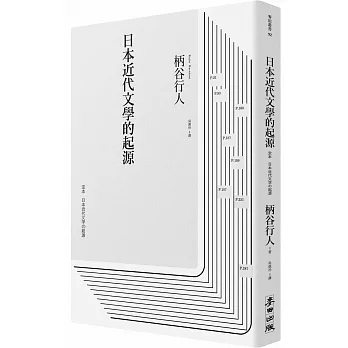




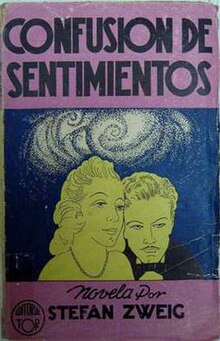
 Jeremiah: A Drama in Nine ScenesStefan Zweig64 downloads
Jeremiah: A Drama in Nine ScenesStefan Zweig64 downloads Jeremias: Eine dramatische Dichtung in neun Bildern (德文)Stefan Zweig53 d
Jeremias: Eine dramatische Dichtung in neun Bildern (德文)Stefan Zweig53 d







